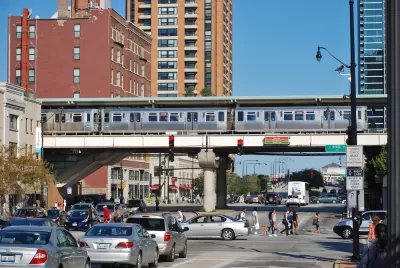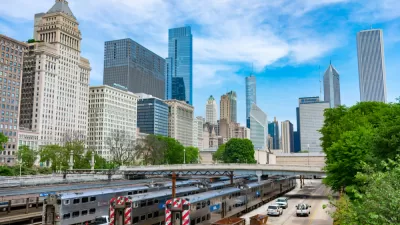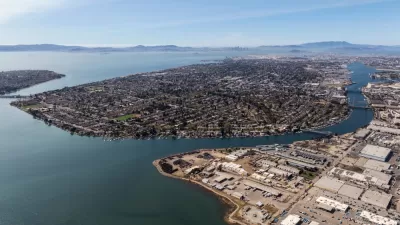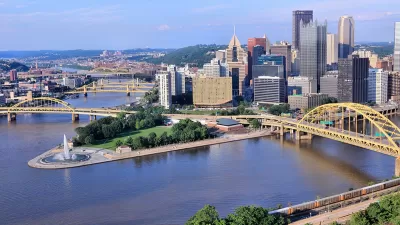The Equitable Transit-Oriented Development ordinance could advance equity and reduce car dependency, but the legislation faces resistance from some city council members.

An ordinance proposed by Chicago mayor Lori Lightfoot’s administration would encourage more transit-oriented development in the city. As John Greenfield writes in Streetsblog Chicago, “Equitable transit-oriented development – building generous amounts of affordable housing near rapid and/or high-frequency public transportation – is a powerful tool to reduce both segregation and car-dependency.” The Connected Communities Ordinance “builds on the city’s 2020 Equitable Transit Oriented Development Policy Plan, which outlined a comprehensive set of actions for officials to take over the next three years,” but the proposal faces opposition in City Council.
“While Streetsblog has been told city staffers are not allowed to share the latest draft of the ordinance, The Daily Line reported that Connected Communities includes almost a dozen measures to encourage transit-friendly housing and walkable streets near stations,” Greenfield reports. The ordinance would ease permitting for affordable housing developments and two- and three-flat housing near transit. “While Chicago typically requires a minimum number of car parking spots at new developments, according to The Daily Line the draft ordinance also included Chicago’s first parking maximum, a limit of no more than one space for every two apartments or condos.”
The ordinance has not yet been introduced to the city council. “Lightfoot recently explained that the legislation needs some more edits before it’s ready for its close-up.”
FULL STORY: Chicago’s proposed Equitable TOD ordinance would fight segregation and car-depedency

Trump Administration Could Effectively End Housing Voucher Program
Federal officials are eyeing major cuts to the Section 8 program that helps millions of low-income households pay rent.

Planetizen Federal Action Tracker
A weekly monitor of how Trump’s orders and actions are impacting planners and planning in America.

Ken Jennings Launches Transit Web Series
The Jeopardy champ wants you to ride public transit.

Crime Continues to Drop on Philly, San Francisco Transit Systems
SEPTA and BART both saw significant declines in violent crime in the first quarter of 2025.

How South LA Green Spaces Power Community Health and Hope
Green spaces like South L.A. Wetlands Park are helping South Los Angeles residents promote healthy lifestyles, build community, and advocate for improvements that reflect local needs in historically underserved neighborhoods.

Sacramento Plans ‘Quick-Build’ Road Safety Projects
The city wants to accelerate small-scale safety improvements that use low-cost equipment to make an impact at dangerous intersections.
Urban Design for Planners 1: Software Tools
This six-course series explores essential urban design concepts using open source software and equips planners with the tools they need to participate fully in the urban design process.
Planning for Universal Design
Learn the tools for implementing Universal Design in planning regulations.
Heyer Gruel & Associates PA
Ada County Highway District
Institute for Housing and Urban Development Studies (IHS)
City of Grandview
Harvard GSD Executive Education
Toledo-Lucas County Plan Commissions
Salt Lake City
NYU Wagner Graduate School of Public Service





























